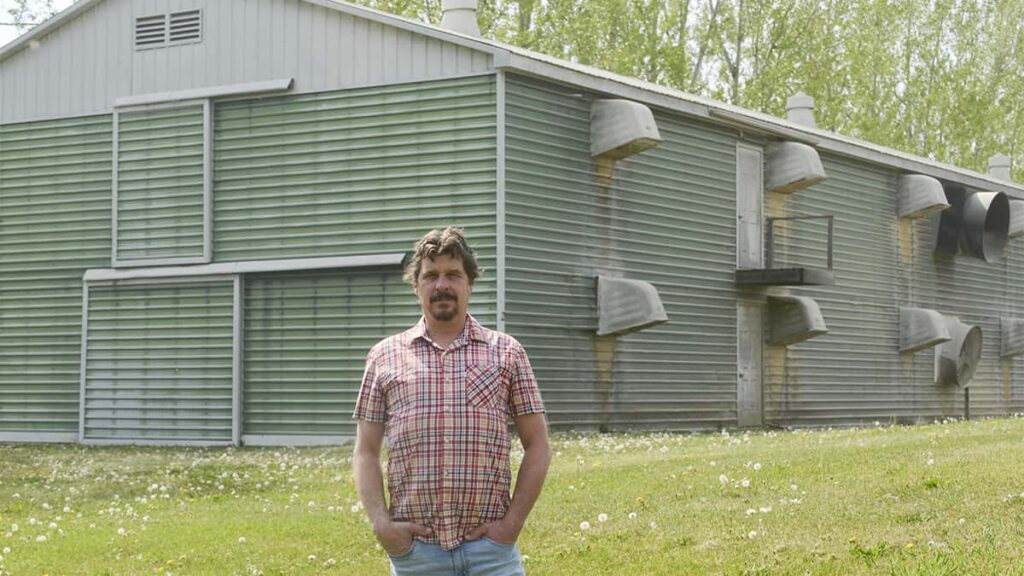
From the Editor: Avian influenza’s mental health toll
Brett Ruffell
Features Migration MattersProducers face multiple mental health stressors when avian influenza is detected on their farm. Luckily, there’s a growing list of resources available to help farmers who are struggling.
 Mark Reusser is a turkey farmer from New Dundee, Ont., and vice president of the Ontario Federation of Agriculture.
Mark Reusser is a turkey farmer from New Dundee, Ont., and vice president of the Ontario Federation of Agriculture. As a poultry veterinarian based in Red Deer, Alta., the hardest hit province during this year’s avian influenza outbreak, Teryn Girard has seen firsthand the devastation the disease causes on farms.
She’s been the point person for clients whose flocks have been struck with the disease, guiding them through the stages until they can repopulate.
And she’s played an unexpected secondary role throughout the process – helping producers cope with the stress and anxiety that follows a positive diagnosis.
“Mental health is at the forefront of this whole disease outbreak,” she told the audience at the Poultry Service Industry Workshop in Banff, Alta., this past October.
The event was held in person for the first time since the COVID-19 pandemic began. Girard, who works for Prairie Livestock Veterinarians and Cargill Animal Nutrition, shared her perspective on dealing with the avian influenza outbreak.
She said producers, understandably, face multiple mental health stressors when the disease is detected on their farm and throughout the stages that follow.
And as a close confidante to producers throughout this past year’s challenges, Girard has learned to talk openly with them about mental health.
“The most important thing I learned was to say right away this is not your fault,” Girard said. “I just assumed that they knew that, but they don’t.”
She found saying this early on allows her to have more open conversations with producers going forward. “It starts the process of healing when they can come to terms that it’s not their fault.”
Indeed, producers face multiple stressors when avian influenza is detected on their farm. There’s the financial stress of being unable to earn an income potentially for months, although supports have improved.
“But perhaps an ever bigger stressor is that time period when you are cleaning up your barn, disinfecting and trying to get it to swab clean but it doesn’t,” says Mark Reusser, a turkey farmer from New Dundee, Ont., and vice president of the Ontario Federation of Agriculture (OFA).
“All you are doing is cleaning, not knowing whether or not you’re successful until CFIA says you’re free to repopulate.”
And then there’s the impact on the flock. “While farm animals are not pets, farmers have some attachment to them,” Reusser says. “To have to euthanize a whole barn of poultry is a traumatic event. And then you have to dispose of that livestock – that is a traumatic event itself.”
Girard adds that oftentimes producers are most concerned about the effect the experience has on their family. “When the kids see those people in the biocontainment suits – that’s terrifying,” she says. So, she makes sure to ask producers open-ended questions about how their family is coping.
On a positive note, there are an increasing number of resources available to support mental health on the farm.
In Ontario, for example, OFA partnered with the Canadian Mental Health Association Ontario to launch a suite of programs this past fall designed to ensure producers are getting mental health support.
Named Agriculture Wellness Ontario, the programs currently include: the Farmer Wellness Initiative, a free 24/7 telephone counselling service staffed by trained counsellors with agriculture experience; the Guardian Network, a volunteer suicide-prevention network; and In the Know, a free four-hour mental health literacy workshop to help farmers and to empower them to assist others.
Additional programs have sprung up across the country. View the online version of this article for a list of options in other provinces.
Reusser has a parting message. “There’s no shame in admitting that you have mental wellness issues. And there’s no shame in seeking help. Look after yourself but also look after your neighbours and your friends and family.”
Print this page